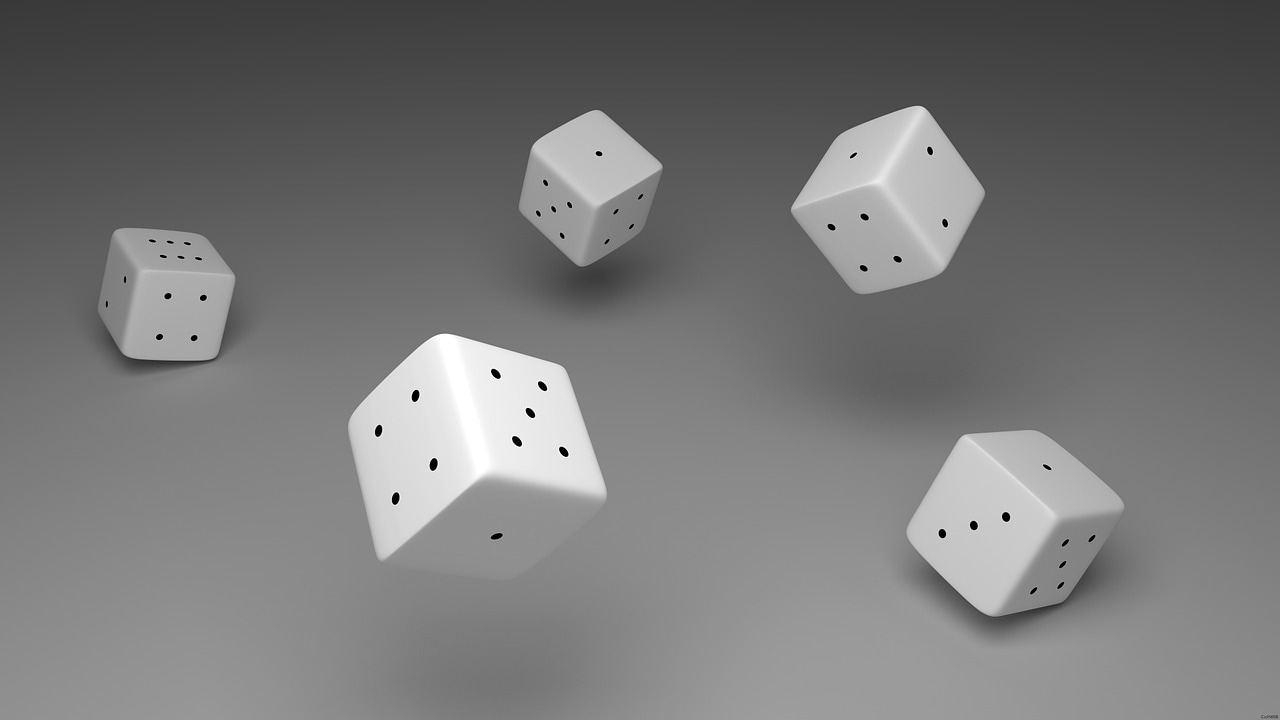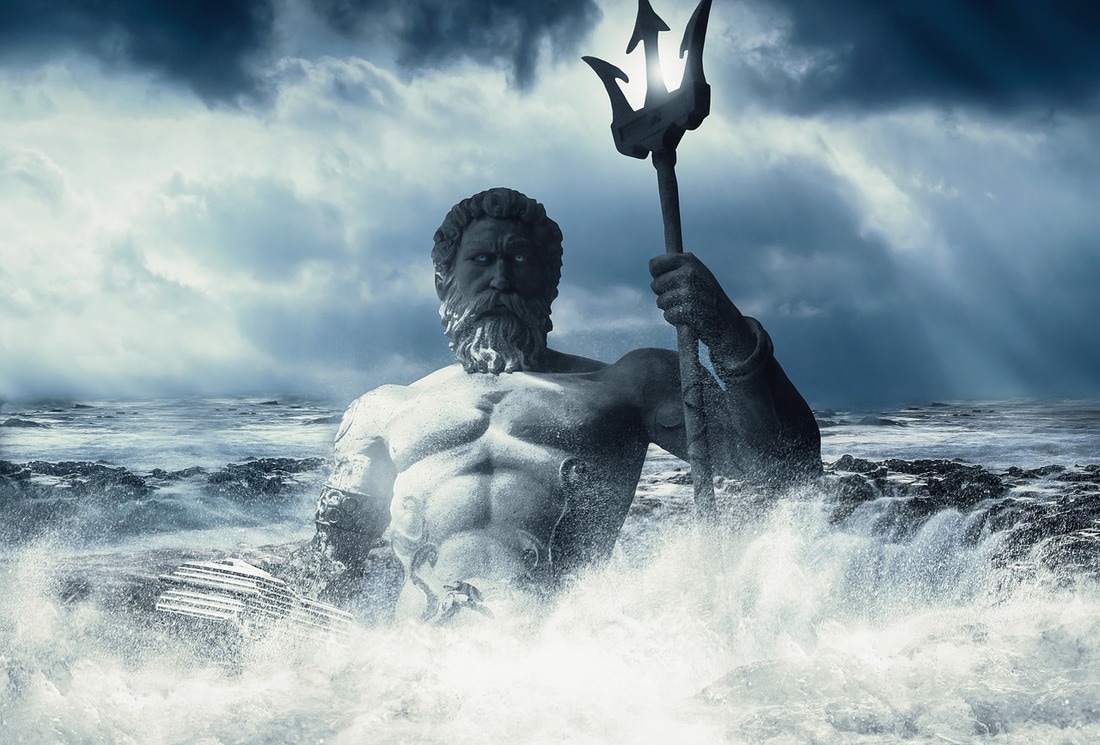"...an old man whose horse runs away. His neighbors agree this is very bad, and Saiou says to wait and see. The next day the horse comes back with another horse. This is good, everyone agrees. Saiou says wait and see. His son, riding the new horse, falls and breaks his leg. This is bad, everyone agrees. Saiou says to wait and see. The army comes through forcibly conscripting young men, but does not take Saiou's son because of his broken leg."
The meaning of this is that "the ways of heaven are inscrutable; fortune is unpredictable and changeable." This may seem obvious when presented in this way, but if that's really true, then how can consequentialist moral philosophers ever decide they have waited long enough and considered widely enough to know for certain whether an action is "good" or "bad"? In fact, they probably cannot. What then to make of the following thought experiment?
--------------------------------------------------
Mette looked into the eyes of her estranged husband, but could find no flicker of remorse.
"You tell me you want us back," she said to him. "But how can we do that when you won't even admit that you did the wrong thing when you left me and the children?"
"Because in my heart I don't think I did wrong, and I don't want to lie to you," explained Paul. "I left because I needed to get away to follow my muse. I went in the name of art. Don't you remember when we used to talk about Gauguin and how he had to do the same? You always said he had done a hard thing, but not a wrong one."
"But you are no Gauguin," sighed Mette. "That's why you're back. You admit you failed."
"Did Gauguin know he would succeed when he left his wife? No one can know such a thing. If he was in the right, then so was I."
"No," said Mette. "His gamble paid off, and so he turned out to be right. Yours didn't, and so you turned out to be wrong."
"His gamble?" replied Paul. "Are you saying luck can make the difference between right and wrong?"
Mette thought for a few moments. "Yes. I suppose I am."
Source: The eponymous essay from Moral Luck by Bernard Williams, 1981.
Baggini, J., The Pig That Wants to Be Eaten, 2005, p. 289.
---------------------------------------------------
I suspect that Gauguin probably had more reasons than Paul did to expect that his bet on himself to become a successful artist would pay off, but we really don't know that for a fact. Either way, wouldn't Paul and Mette have discussed this when Paul first made his decision to leave the family? If not, they certainly should have. And if they did, then Paul presumably did the best that he could under the circumstances he was in. Otherwise, Mette wouldn't even be talking to him now. If such simple conversations at the moment of leaving could have solved this issue right from the get go, why is this thought experiment considered a problem at all?
As stated in the Stanford Encyclopedia's introduction to the problem of Moral Luck, Bernard Williams said, “when I first introduced the expression moral luck, I expected to suggest an oxymoron." Traditionally, people are committed to the general principle that we can only be judged morally on factors that are under our control. But in countless particular cases, "we morally assess agents for things that depend on factors that are not in their control. And making the situation still more problematic is the fact that a very natural line of reasoning suggests that it is impossible to morally assess anyone for anything if we adhere to [this principle of control]."
To help illustrate this further, consider another common example that is often used to discuss the extent of this problem of moral luck—that of a traffic accident. Imagine the following scenario:
"There are two people driving cars, Driver A, and Driver B. They are alike in every way. Driver A is driving down a road, and, in a moment of inattention, runs a red light as a child is crossing the street. Driver A slams the brakes, swerves, in short does everything to try to avoid hitting the child – alas, the car hits and kills the child. Driver B, in the meantime, also runs a red light but, since no one is crossing, gets a traffic ticket but nothing more. ... The only disparity is that in the case of Driver A, an external uncontrollable event occurred, whereas it did not in the case of Driver B."
So Driver A gets caught and punished severely, while Driver B faces nothing more than a fine. Is that fair? We might say that the circumstances can't be known to be exactly the same since Driver B might still have managed to avoid the child, but we could rule this quibble out at least theoretically for the purposes of thought experiments. The point, however, is not to say that all drivers like Driver B should be rounded up and given manslaughter charges—we just couldn't prove they really deserved it—but the story of the traffic accident involves a much different kind of luck than the one illustrated by Gauguin, Paul, and Mette. In fact, the philosopher Thomas Nagel identified four kinds of moral luck in a response to Williams' original paper:
- Resultant moral luck (consequential) - we can't know the future (e.g. Paul and Mette, or Saiou's horse)
- Circumstantial moral luck - our wider environments are out of our control (e.g. the traffic accident)
- Constitutive moral luck - who we are (nature x nurture) is out of our control
- Causal moral luck - free will determinists would say everything is out of our control
Given all this uncertainty in the world, there really ought to be much less moralising judgment. Don't you think? That, to me, is the point of this thought experiment. Heck, even in the case of the traffic accident, how can we really know that the child who was killed wasn't on his way to becoming Hitler? If that were found to be the case, would Driver A eventually be praised by historians? Movies about what a time traveller ought to do would certainly suggest so.
This all takes the fundamental epistemological uncertainty I've written about — i.e. that knowledge can only ever be justified, beliefs, that are surviving — and shows how that is relevant to everyday decisions about ethics and justice. Since knowledge is probabilistic, then it stands to reason that moral outcomes are susceptible to luck. And so, for ethics, no principles of consequentialism can ever provide a clear enough picture on their own to justify moral judgment. As I said in response to wonderful comments from reader Disagreeable Me on Monday's blog post, a larger picture must also be considered. I noted that...
...in previous posts, I've said the three main camps of moral philosophy are roughly concerned with the three tenses of time—past, present, and future. Virtue ethics is concerned about your prior intentions. Deontological rules govern in-the-moment actions. Consequentialism judges the future results. Of course, in real life, we take a total perspective of the whole and can easily recognise when someone had A) the best intentions, followed the rules, and things ended badly; or B) selfish intentions, broke a few rules, but things turned out well; or some other combination of the three. ... I would say that deontology is concerned with the *action*, not the intention leading up to it, nor the consequences after it, so while those actions may now be in the past, the deontological judgment is concerned with the momentary action in the present tense that it happened. Confining virtue ethics to the past tense is tricker because virtuous intentions do lead to an action, but I think that moral school of thought is more concerned with what is going on in the mind of the actor *prior to* an action (how virtuous are they trying to be) rather than the virtue of one action in isolation. For example, if someone cowered in fear about doing the right thing for weeks and months but then in the moment ended up acting courageously, I think virtue ethics would judge them less virtuous than someone who courageously prepared for a right action all along.
Following on to how this plays out in considerations of justice, I say again that the four main categories of punishment must be reconsidered. As I already wrote about this topic, the various means of punishment should be doled out as necessary and appropriate in an escalating order of: restoration, rehabilitation, and finally incapacitation as a last resort. The focus of these punishments is the education of the criminal and the deterrence of future offenses by the populace. Seeking retribution gives way to short-term emotions of vengeance that were useful in nature before the public good of justice was provided for by the state. Now, however, the emotions of the victim of a crime must not be allowed to override the use of reason to create justice and stability for the long term.
Only retribution is aggravated when we ignore the role that moral luck plays, but as you can see, I think the motive for retribution should already be ignored.
Finally, to reiterate another fundamental position of my evolutionary philosophy, these judgments of "good" or "bad" virtues/rules/consequences are not based on some cosmic, supernatural thing that exists separately from us. Before life came into the universe, it made no sense to consider the concept of good or bad. We can only answer if something is good or bad once we consider the question "for whom?" And that requires a "who" to actually survive and exist. Recognising this, means that there is no ultimate or externally derived definition of good or bad. Good or bad, can only be judged for "us." In my published paper on morality, I explained how "us" must logically be widened as far as possible to include considerations for "life in general over evolutionary timelines," but the trick of course then, is how to balance the competing needs of various subsets of "us"—the self vs. others; family vs. family; nation vs. nation; species vs. species; current vs. future generations. Inevitably, however, the ultimate consequence of morally good actions must be the survival of life in general. Without life, the question of good or bad goes away entirely. We may not ever really know if our actions are leading towards this universally fundamental goal, but we can do our best with the knowledge we have and be ready to forgive or punish appropriately the trials and errors that have gone astray along the way.
All our actions are susceptible to the luck of "genes x environment," but now that your environment has been exposed to the idea of what is morally good for the survival of life, you really ought to consider it and act accordingly. Sorry, but that's just the luck of our draw.
#sorrynotsorry






